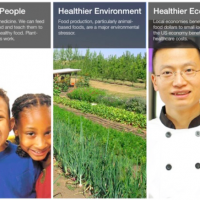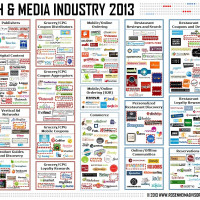A comprehensive study released in October by Agro-Insight confirmed that while farmers in developing nations want access to agricultural information through instructional videos, sizable challenges to distribution still exist.
Social networks are often the best way to pass on information about knowledge-intensive sustainable farming. But farmers in developing countries with unreliable internet access opt instead for information and communication technology (ICTs) like mobile phones, GPS systems and video to share data and techniques for sustainable farming.
Instructional videos are important tools as they can easily reach larger groups of farmers in remote locations, and have the potential to overcome gender and participation bias in training. Usually produced and distributed by local NGOs and government extension agents, these videos are in high demand among farmers, as are shown in case studies within the report.
However, the report, commissioned by the Global Forum for Rural Advisory Services (GFRAS), the Sustainable Agriculture Initiative (SAI) Platform and the Swiss Agency for Development and Cooperation (SDC) found several major challenges to scaling up video production and dissemination programs.
Challenge #1: Language Barriers
Language barriers are one of the most common problems, particularly when the programs are launched on a larger scale and video content must be translated into several local or regional languages. Additionally, scientists generally do not have the video production skills required to tape the videos, while local media representatives often do not possess the agricultural knowledge to be conveyed, which can lead to miscommunication.
Challenge #2: Creating and Maintaining Quality Content
Many ICT initiatives tend to focus too narrowly on the tool, touting the technology itself as the solution. But for video sharing to be effective, content must be engaging to its viewers, not to mention timely and locally relevant.
Challenge #3: Constructing Networks for Farmer-to-Farmer Knowledge Sharing
Similarly, ICTs cannot construct the networks needed for farmer-to-farmer knowledge sharing, and can only function within existing social frameworks. The maintenance and expansion of these programs then relies upon farmers and extension agents to engage other local participants and to secure resources from the research and donor communities.
According to the UN Food and Agriculture Organization, sustainable agriculture is increasingly imperative to achieving food security and environmental preservation, and ICTs like farmer-to-farmer instructional videos are valuable tools to facilitate knowledge-sharing about these techniques. For the farmers, NGOs, and extension agencies who are working on video-sharing projects, overcoming these challenges will ensure the scalability of their initiatives.
In the coming weeks, Food+Tech Connect will explore how groups are using and improving ICT projects to allow farmers and researchers to better communicate agricultural techniques and best practices.






